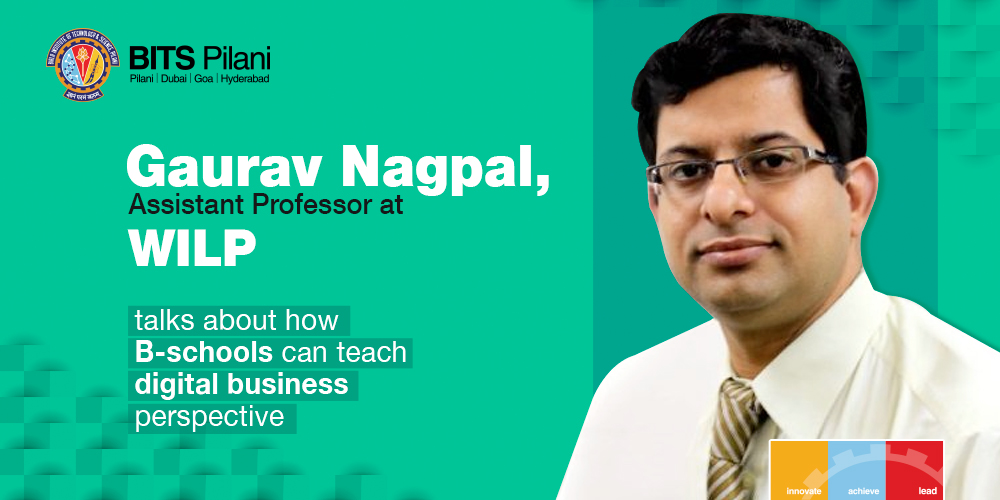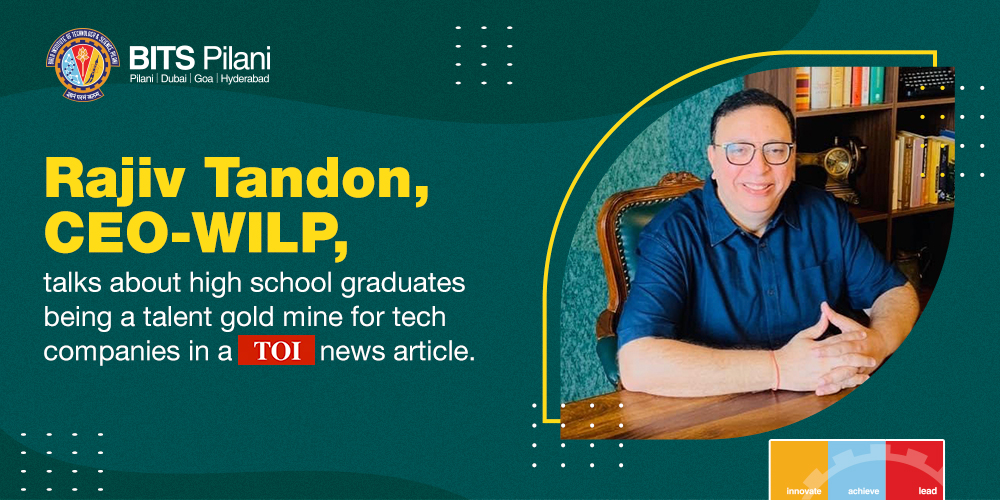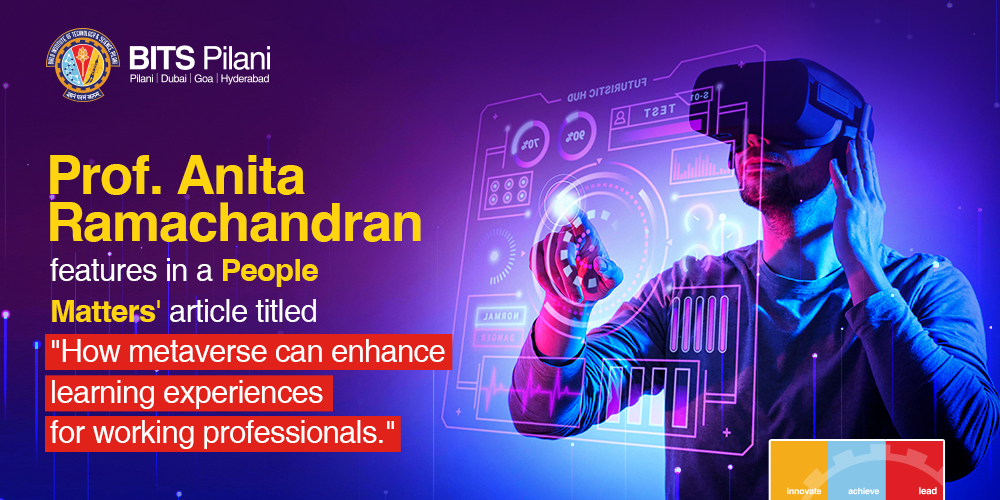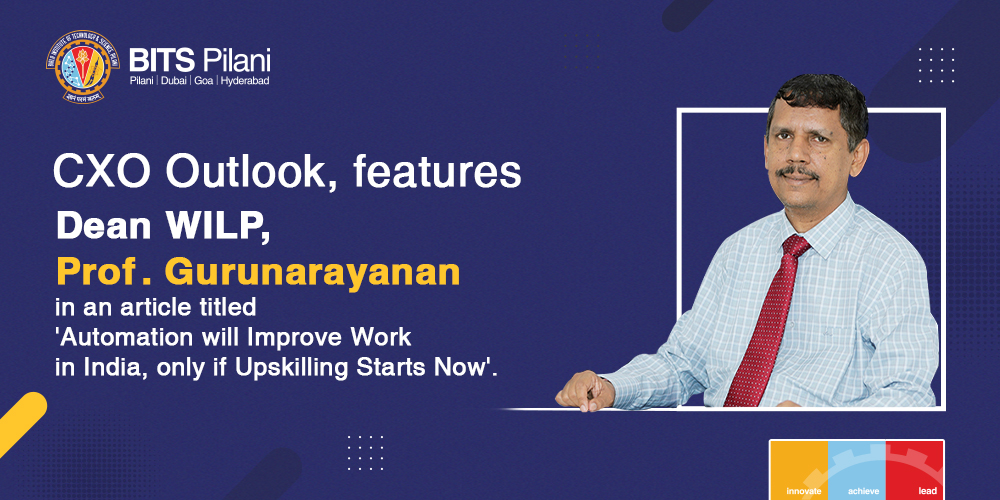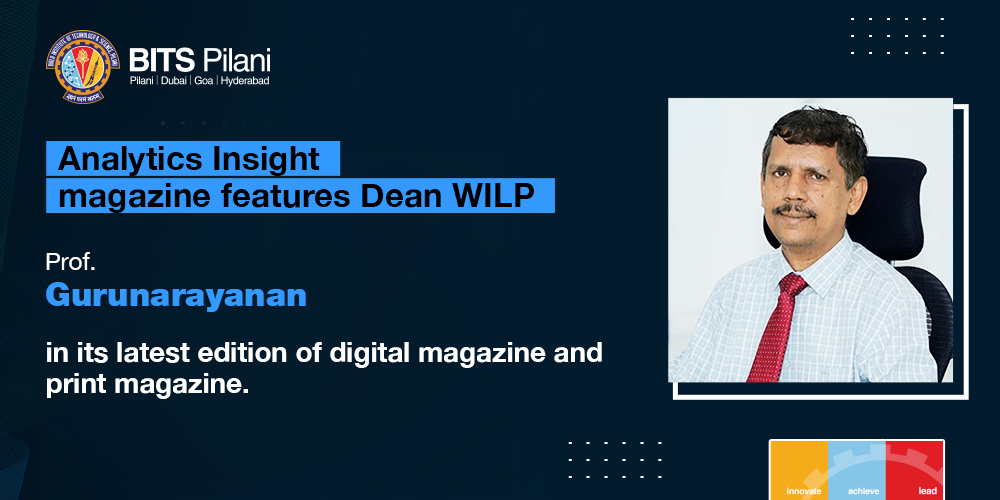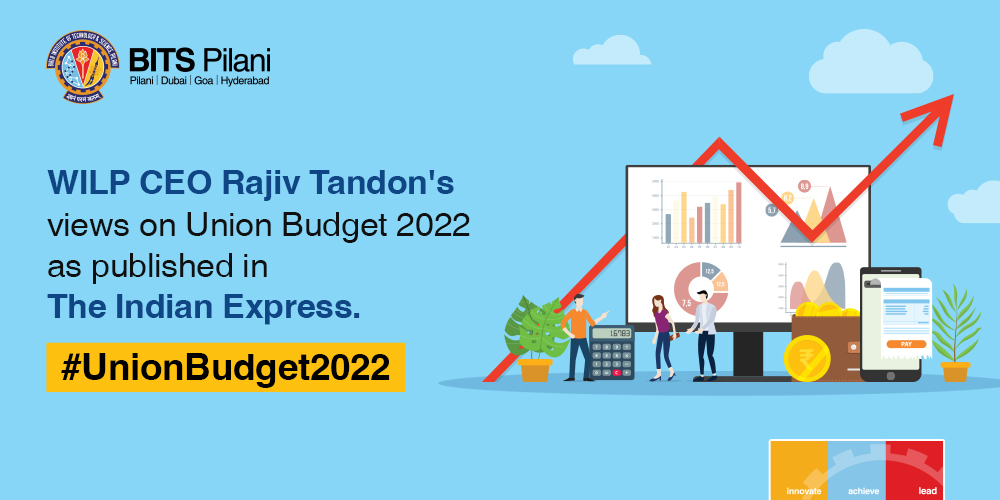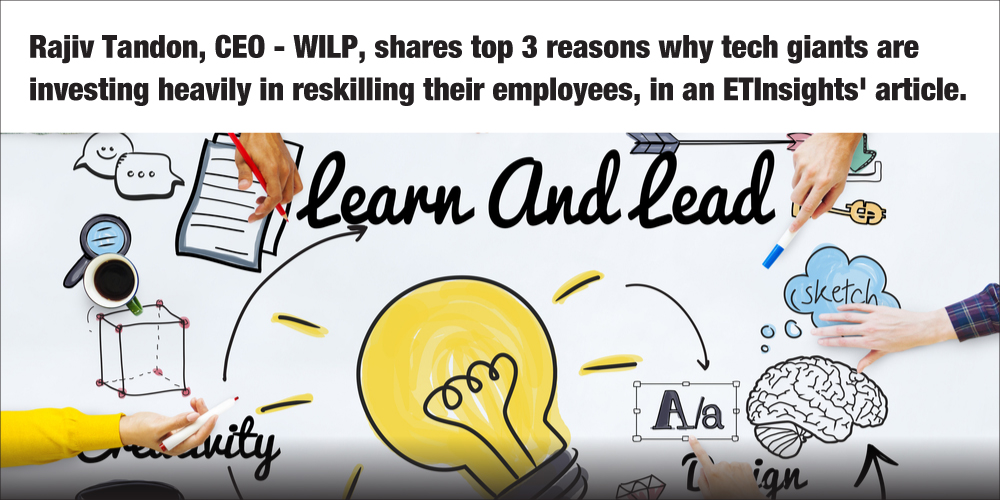Articles
Articles
Unlocking Scalability: Prof. Shreyas Suresh Rao explores cloud-native approach in enterprise applications
Explore the depths of enterprise application scalability with Prof. Shreyas Suresh Rao's illuminating insights featured in The People Management. As an Associate Professor at BITS Pilani WILP, Prof. Rao delves into the transformative potential of the cloud-native approach, emphasizing its role in bolstering scalability. From discussing the critical need for scalability in enterprise application development to exploring the nuances of cloud-native development, his article navigates through key touchpoints. Moreover, Prof. Rao sheds light on how embracing training programs and certifications, focusing on Software Architecture (Microservices, SOA), DevOps practices, and Cloud platforms (AWS, Azure, Google Cloud), can empower professionals in the field. For a deeper dive into his thought-provoking analysis.
From Coder to Product Mastermind: Unveiling the Secrets of Product Management
Unleash the full potential of your coding skills. BITS Pilani WILP’s Prof. Anita Ramachandran and Prof. Pravin Yashwant Pawar reveal exciting career paths, collaborative team dynamics, and how to upskill for this in-demand field in this insightful article.
The Evolution and Future of Natural Language Processing (NLP) in AI
Dive into the fascinating world of NLP, a branch of AI that's revolutionizing how machines understand us. Read the article by Prof. Chetana Gavankar to discover the exciting challenges & advancements in NLP, and how it's shaping the future of chatbots, virtual assistants, and more natural interactions with machines.
Empowering Working Professionals: Navigating Sustainability in a Changing World with Prof. Mahesh Kumar Hamirwasia
In his article published in CSRBOX, Prof. Mahesh Kumar Hamirwasia, Assistant Professor, BITS Pilani WILP, delves into the pivotal role of working professionals in promoting sustainability amid escalating environmental challenges in CSRBOX. Uncover his insights on cultivating sustainability traits and gain valuable knowledge on conducting sustainability audits, defining impactful leadership, reaping long-term benefits, and crafting effective business strategies for sustainable practices. Don't miss out on his remarkable viewpoint!
Improving computational performance of AI requires upskilling of professionals in Embedded/VLSI area
Prof. Satya Sudhakar Yedlapalli in his article “Improving computational performance of AI requires upskilling of professionals in Embedded/VLSI area” discusses the growing importance of AI in electrical and electronics engineering. It explores how VLSI design plays a critical role in enabling efficient hardware for AI applications. It highlights how this integration benefits various sectors and emphasizes the need for upskilling professionals in VLSI to address the evolving landscape. To know more read the article <link of article
Revolutionizing Finance: How Fintech is Changing Lives in India/ Fintech Revolution in India: Mobile Payments, Robo-Advice & More
Discover how new technology is changing money in India! From easy payment apps to smart investment advice, fintech is making finance better for everyone. Learn how innovative technologies are transforming banking, investing, and insurance.
Human + AI: The Future of Work Symphony
AI will reshape, not replace, the workforce. Automation creates new roles in data, design, and machine learning, while human skills like creativity remain irreplaceable. Read the article by Prof. Sangeetha Viswanathan where she examines the impact of AI on jobs and emphasizes upskilling to thrive alongside AI in the future of work.
Unlocking the Future: The Nexus of AI, HPC, and Breakthroughs
Dive into the cutting-edge insights of Professor Saikishor Jangiti from BITS Pilani WILP recently published in ET Edge Insights as he delves into the intricate relationship between Artificial Intelligence (AI) and High-Performance Computing (HPC). Explore how this dynamic duo is shaping the landscape of technology, from unraveling complex computational challenges to propelling breakthroughs across industries. Explore thought-provoking questions like the symbiotic relationship between HPC and AI, the transformative power of AI, HPC, and Big Data convergence, and the pivotal role of ChatGPT in revolutionizing Natural Language Processing and AI.
The Need for Quantum Technologies
When computers first came, we had a very small volume of data. A tiny computer program would be written, as a step-wise procedure, to solve a problem. And computers did not require much computational power to solve the problem. However, in today's world, we have huge volumes of data, and data has become the new oil, and hence, the computational power needed to process the same has increased tremendously.
Prof. K.R. Anupama Unveils the Transformative Realm of Remote Learning for Busy Working Professionals
In her recently published article, Prof. K.R. Anupama, Associate Dean, BITS Pilani WILP explores the transformative world of remote learning, spotlighting it’s comforting embrace for busy professionals. Uncover key insights on AI's workplace revolution, online learning as a career game-changer, and tackle challenges head-on. Ready to master the art of online education?
Upskilling: Why finance guys need to study fintech
The financial services industry is undergoing a profound transformation. To keep up with the changes, we need to constantly reskill and upskill. While there are multiple courses, a master’s degree in financial technology (fintech) can also be considered – not merely as an academic pursuit, but also if you want to thrive in the world of finance.
Securing AI Platforms — Understanding Key Challenges And How To Address Them
When talking about AI and security in the same context, AI can be used to create more security solutions in business. While it is essential to think about what needs to be secured, securing AI itself has become a dire necessity as well. AI tools are highly susceptible to data manipulation and privacy breaches. Compromising security and privacy, either at the low end or at the high end might lead to severe consequences. From data poisoning, model theft, and inference attacks to creating polymorphic malware through modern-day Gen AI, the vulnerable scenarios are many.
Navigating disruptive technology trends in the automotive industry
Prof. Paramesw Chidamparam is an associate professor at the BITS Pilani Work Integrated Learning Programmes (WILP) division. In this article, he highlights the steps needed to create a future-ready workforce for new-age mobility. As a professor at BITS Pilani WILP, who has been entrusted with a key support role in designing and developing customized academic programmes to reskill and/or upskill working professionals in the automotive industry, I have had several opportunities to connect with multiple leading automotive Original Equipment Manufacturers (OEMs) and suppliers over the last two years. It has certainly not been surprising for me to learn about significant skill gaps predominantly driven by electrification and a wave of new and disruptive technologies.
Ten Commandments on how organizations should execute digital transformation strategies - By Dr. Gaurav Nagpal
It is a well-accepted fact that digital transformation is critical for the success of almost every business. The digital transformation ideas and endeavours that may have been considered earlier as “nice to have” eventually became “critical to have” for most organizations, especially after the advent of the pandemic or during it.
How to Address Battery Thermal Management and EV Range Anxiety?
With recent advances in research, Lithium-ion (Li-ion) batteries have certainly become one of the most reliable renewable energy sources for powering automobiles, electronics (mobiles, laptops, tablets, etc.) and standalone energy storage equipment across the world. Li-ion batteries do stand out in comparison with fossil fuels, such as petrol and diesel. Unsurprisingly, with the current pace of advancement and focused priorities of several governments around the world, it does seem that Li-ion may likely replace various forms of non-renewable energy sources in many applications by 2030.
Prof. Vamsidhar Ambatipudi, Associate Professor, BITS Pilani WILP, contributes his insightful views to the industry story by THE NEW INDIAN EXPRESS
Professor Vamsidhar Ambatipudi, an Associate Professor at BITS Pilani Work Integrated Learning Programmes (WILP), illuminates the distinctive attributes of excellence, teaching methodologies, diversity, and the unique value proposition that distinguish BITS Pilani in the highly competitive landscape of management education. As we explore further, we discover the myriad reasons why BITS stands out and can be an excellent choice for many.
WILP helps working professionals continue their education without a career break
Under this programme, the workplace serves as a real-life laboratory as efforts are made to integrate academic content delivery with experience at work At a time when workplace dynamics and technology are ever-changing, universities have introduced the Work Integrated Learning Programme (WILP), which is proving to be an effective learning model to meet the aspirations of working professionals in the continual learning space. Moreover, it is an enabler for those who find it tough to further their education goals due to their work schedule. The programme caters to both students and professionals seeking to simultaneously upskill, obtain educational qualifications, and gain valuable industry exposure.
Smart manufacturing: Revolutionising the future of production
In the landscape of modern manufacturing, a revolutionary wave known as “smart manufacturing” is sweeping across various industries, harnessing cutting-edge digital technologies to supercharge efficiency, productivity, and adaptability. This paradigm shift centres around creating interconnected, data-centric, and automated production systems that are redefining the future of several industries.
Exploring early professional careers: Myths, realities, and benefits
Many centuries ago, ancient India witnessed several societies in which the education system and professional expertise had excelled together. For instance, consider the traditional Ayurveda practice, in which the new entrants used to join the existing practitioners, without any formal training; after a period of time, they used to practice Ayurveda through "learning while doing" methodology, under the guidance of a Guru (teacher).
Why are techno-managerial MBA programmes more relevant than traditional MBA to leverage Industry 4.0?
Industrial revolutions are powered by innovation and technology. Industry 1.0 was primarily characterized by mechanization, steam power, and weaving loom; Industry 2.0 by electric power and mass production using assembly lines; Industry 3.0 by electronics, computers, and automation. Currently, we are living in the age of Industry 4.0, characterized by inter-connected cyber-physical systems and powered by intelligent automation, smart IOT devices, networks, cloud computing, big data, analytics, artificial intelligence, machine learning, etc.
How to Overcome Phobia of Learning Programming-based Data Analytics
In 2006, a data scientist, Clive Humby, was the first to use the phrase, “Data is the new oil.” In the last two decades, data seems to have become the new gold and the new oxygen as well. Businesses throughout the world are betting their future on their ability to sift through mountains of data and extract relevant knowledge.
The Most Pressing Cybersecurity Threats in Ever-evolving Internet Landscape — How can Organisations and Working Professionals Address them?
During the pre-Internet era of landline phones and mobile phones, cybersecurity threats were mainly in the form of man-in-the-middle attacks — where the attacker or perpetrator secretly intercepts, relays, and possibly even alters the communications or messages between two parties. However, from Distributed Denial-of-Service (DDoS) attacks to Data Privacy concerns and to the more vigorous threats of today, cybersecurity attacks have indeed come a long way.
How can Working Professionals Leverage Analytics to Empower Various Key Applications of Finance?
In the 21st century, among various key skills, financial literacy too has become an essential skill for almost everyone. The ability to manage one’s own finances, make well-informed investment decisions, protect against uncertainties, and lay a strong financial foundation for a secure and successful retirement — all of these stem from one’s familiarity with the financial concepts and complexities. The scope of financial literacy ranges from a basic understanding of different financial products to highly advanced mathematical modeling of their complex characteristics.
Job prospects after engineering
With the boom in the IT (information technology) industry and the rapid involvement of computer systems in almost every sphere of life, an engineering degree in Computer Science (CS) / IT is certainly one of the most coveted qualifications these days. It opens the doors to multiple opportunities—students can choose between lucrative job prospects and higher education, as well as the hybrid option of pursuing a higher degree alongside a job.
The curious collaboration between humanity and technology – the present and the future!
With each passing day, we see the emergence of new technology. Not one day exists, during which humans can refrain from experimenting with technology. And yet, there exists a strange and curious association that humanity has with technology. On the one hand, humanity defines and helps technology to evolve to make lives simpler. Yet, on the other hand, there is this lingering fear as well that technology may take over humanity in the near future. And this dilemma of whether technology is a life saviour or a threat, contributes immensely to the curious collaboration that exists between humanity and technology!
Comprehensive Survey On Generative AI and its Impact on Future of Jobs
Generative AI is the new limelight of Silicon Valley with the biggest advantage of being “ready to consume with a little customization.” Companies can now build their content-specific models upon the foundation language models, breeding innovations. According to a UBS study, “ChatGPT reached 100 million monthly active users in just two months after its launch, making it the fastest-growing consumer application in history.”
5G in India and its overall impact on the field of education
As India gears up for a new era in technology, learners in the field of education, including undergraduates, graduates, and skilled workers, are set to reap the benefits As per the Government data, India’s 5G network has spread to 50 cities in two months from its launch in India. This is the era of fifth generation of mobile internet connectivity, characterised by high-speed and data, universally accessibly to masses. Going forward, the 5G technology will likely improve India’s position as an economic and tech powerhouse from a global standpoint. Putting the country on a road to technological revolution, the 5G adoption is set to bring about transformation in crucial sectors such as agriculture, health, education, transport and logistics, leading to stronger networking, financial inclusion, and prosperity.
Creativity, Emotional Intelligence and Critical Thinking will always have an edge over AI
We humans have the innate power to create, train, and control Artificial Intelligence (AI) systems. AI is dependent on data to learn and improve upon, and humans are responsible for providing that data. The data used to train AI can potentially come from a variety of sources, including historical records, human-generated content, and sensor data (the collected data).
How tech advancements have significantly enhanced learning experiences in the field of Work Integrated Learning Programmes
The COVID-19 pandemic saw a few countries with not-so-good digital infrastructure and insignificant experience in online learning, experience a considerable decline in the quality of education. Unsurprisingly, post the pandemic, UNESCO has come up with a series of policies in support of digital innovations that can be incorporated into learning. Also, several digital innovations, such as Learning Management Platforms (Coursera, Canvas, Moodle, EdX, etc.) have seen significant growth; many of them provide several features that potentially have a deep impact on student-faculty interaction, via inbuilt chats, discussion forums, study groups, etc
Do you aspire to be a digital entrepreneur? … Here are ten ways to mitigate your risks
We observe that many of today’s highly valued businesses are digital businesses that have been able to scale up fast. There are many firms, such as Swiggy, Pharmeasy, BigBasket, and Paytm that have become unicorns, while many are on the way, examples being Redbus, Rapido, etc. It takes much more than just a strong technical aptitude to float a digital startup; in my view, here are ten risk mitigation ways that you may need to be considerate of before you proceed further with your journey as a digital entrepreneur
Securing Fintech the Blockchain Way—Why, Where, and How It is Done!
For some time now, the Financial Services industry has been experiencing a dramatic transformation that is driven by various innovative technologies, such as Artificial Intelligence (AI), and the Internet of Things (IoT). This transformation driven by innovative technologies is referred to as FinTech and it is radically transforming the design and delivery of financial products and services across the globe. Among several technologies, Blockchain is certainly one that is quite popular and deemed promising too from a FinTech standpoint.
The battle between conceptual and contextual learning
High-quality and enduring conceptual learning cannot happen unless aided by contextual learning activities. Humans have waged some pointless battles for ages and, often, the trigger comes from a lack of adequate understanding of the matter and flawed judgement of the motives of the supposed adversary. One such battle fought only with sharp opinions and thoughts, is between academia and industry about the relative importance of conceptual learning and contextual learning.
Learning & Development is the Foundation to Building Resilient Economy
A resilient economy is the one that can withstand external shocks, adapt to changes in the market, and continue to grow and thrive. Learning & Development (L&D) is essential to achieving this goal, as it helps businesses and various industries in ensuring that their workforces acquire the relevant knowledge and skills — which invariably help them succeed by adapting to the ever-evolving environment and dynamics, and still stay competitive.To quote Nelson Mandela, “Education is the most powerful weapon which you can use to change the world”
Remote Labs for Remote Students
Since 2016, BITS Pilani has been offering remote and virtual labs for their off-campus students. Professor PB Venkataraman, Associate Dean in the Work Integrated Learning (WIL) Division, is responsible for digital learning in the division, and has been leading the development of the innovative labs. He shares his experience of working on the project, key learnings, challenges, and the value of ICDE membership.
Challenges in implementing clean and green technologies — and the way forward!
Impact of global warming on the earth has been realized for quite some time now; accordingly, various stake holders are already talking about the sustainable development goals (SDGs) and their implementation using clean and green technologies. Clean technology refers to the use of conventional energy resources to address the energy demands, without causing environmental damage. And green technology refers to the use of environmentally friendly renewable energy sources
New age conundrum. How do you solve a ‘wicked problem’ called Gen AI
Generative AI solutions like ChatGPT, Perplexity.ai and AutoGPT have spread like wildfire, catching the imagination of users from a wide variety of sectors. But at higher educational institutions, academic heads are worrying about how it will impact pedagogy and learning.
The Future of Automotive Technology: Revolutionizing with 4 Powerful Concepts – CASE
Imagine experiencing the New Mobility of the future. The world of automobiles would change dramatically and the days of gasoline-powered engines and manual transmissions would potentially be gone. Instead, sleek electric vehicles with autonomous driving capabilities would dominate the roads.
India Needs their Working Professionals to Focus on Quality Higher Education in EEE too — Now More than Ever
The industry revolution 4.0 semiconductor chips are an integral part of most of the modern-day electronic devices. And Taiwan is the world’s leading manufacturer of semiconductor chips. Taiwan-based semiconductor chip fabrication labs, TSMC and UMC, produce more than 60% of the semiconductor chips required in the world, supplying ICs to some of the biggest tech companies in the world, including Intel, AMD, Apple, ARM, Marvell, Nvidia, Broadcom, and MediaTek.
Digitalize or perish — a new norm in supply chains
Digitalization is a buzzword today, and the supply chain is not an exception this. But digitalization of supply chains is not something new. Around 25 years ago, Dell revolutionized the entire computer industry by digitalizing the supply chain. The consumer could specify his desired features and the laptop would be configured according to the requirements. Similarly, Zara, a fashion industry firm that is known for its responsiveness, revolutionized the fashion industry around fifteen years ago, promising 2-3 weeks of lead time to the retailer on the make-to-design products. It could achieve this by limiting its manufacturing in Spain unlike most of the contemporary fashion industry players that were outsourcing to China, which used to take 3-4 months for supply.
Responsible implementation of technology holds the key in augmenting healthcare
Having witnessed the on-going technology-inspired revolution in the healthcare sector, we will still need to exercise discretion in ensuring that technology is implemented judiciously Implants, stents, genome sequencing, non-invasive surgeries, transplants and prosthetics — the evolution in medical sciences over time has been stupendous to say the least. The proliferation of technology has provided an impetus to several elements of the end-to-end healthcare value chain — consultation, maintenance of health records, surgical and diagnostic procedures, large scale production of drugs, personal health monitoring, and many others.
Data Privacy Day: A day perhaps to also spread awareness on how everyone can contribute to data protection
During the early part of every new year, most information security practitioners across the globe look forward to celebrating a significant event — the Data Privacy Day! However, in my view, it is also a day that every ordinary person should consider celebrating as well.
Budget 2023: Not just fiscal deficit, managing “skills deficit” in our workforce should also be a priority
There are contrasting views and forecasts from various experts on how the year 2023 could be for the Indian economy. While some advocate exercising extreme caution on governmental spending due to the looming threat of a global recession, others are more upbeat, primarily on the basis of a few recent trends that show India is faring relatively better than many other world economies. However, most experts expect that managing the fiscal deficit during this budget will likely remain one of the key focus areas of the government and that it would need to ensure a fine balance between fulfilling both long-term and short-term national priorities.
Planning to set up your own EV startup? Here’s the collaboration you may need
India is witnessing a surge in EV adoption could be considered an understatement considering that 2022 the country sold almost sold 1 million EVs in 2022 (9,99,949 units) as per Vahan data. This was also 209.7 percent more than in 2021 which saw a surge of 165.4 percent alone. However, while the buyers are getting well sensitised to the growing need for cleaner mobility, manufacturers still seem to be torn between the EV vs Hybrids debate. While Maruti Suzuki and Toyota firmly believe in Hybrids as the perfect solution for countries such as India, Japan and Sri Lanka. Homegrown automakers such as Tata Motors and Mahindra have stepped on the EV wave and are betting on it for the future.
2022 — “a Leap” Year for BITS Pilani WILP in Transforming Learning Experiences of Working Professionals
Never Mind, if the year 2022 did not have one extra day in the month of February to technically qualify it as a “leap year.” It was still “a true leap” year for us at BITS Pilani’s Work Integrated Learning Programmes (WILP) division, during which we took many leaps and strides toward transforming the learning experiences of working professionals.
Ten Commandments for Employees to Stay Relevant in a Digitally Disruptive Work Atmosphere By Dr. Gaurav Nagpal
In one of my earlier articles, I outlined how important it is for every business to have a digital strategy. Let us now explore how our workforce can prepare for this. As a professor in BITS Pilani‘s Work Integrating Learning Programs — which also offers an MBA in Digital Business – I offer my “Ten Commandments” for employees to survive and grow in a digitally disruptive environment.
Eleven reasons why every business needs a digital strategy
In this digital era, every firm, irrespective of its size, business domain or geography needs to adopt the digital chord. As a professor in BITS Pilani’s Work Integrated Learning Programs Division — which also offer MBA in Digital Business – here is an elaboration of the need to have a digital strategy.
Soft Skills Propel Tech Professionals in Their Careers
When Charles Darwin, the 19th century naturalist who is best known for his contributions to evolutionary biology, realized the importance of adaptability among species, the 21st century technology sector certainly did not even exist; however, some of his observations about survival skills are relatable even today, when we consider the critical skills that today’s technology professionals will need to survive and thrive in present times.
Dr. Nishit Narang, Associate Professor, BITS Pilani, discussed the current state of information security and the growing skill gap among academia and industries, with Rahul Raj from Infosecurity Outlook Magazine.
In an interview with Rahul Raj, Dr. Nishit Narang discussed the current state of information security and the growing skill gap among academics and industries. He asserted the need for an industry-driven and technology-driven curriculum with a practical approach. The ICT industry must support academia by providing not only funds for the establishment of advanced technology centers but also opportunities for students in academia through industrial projects and internships.
Cybersecurity: Why effective data security necessary in today’s competitive world
Businesses thrive when they leverage data successfully, as data manifests as the new fuel for their growth engine. Conversely, with cyber-attacks or when their valuable data is either leaked or locked for ransom, most businesses either lose competitive edge, incur significant losses, or even shut down.
5G-enabled Virtual Labs — A New Era Begins in Experiential Learning
“For the things we have to learn before we can do them, we learn by doing them,” said Aristotle, a philosopher, and polymath who lived in ancient Greece from 384 BC to 322 BC. From ancient times to modern times, many accomplished personalities in different fields and domains have advocated the power of “learning by doing,” which is also popularly referred to as “experiential learning.”
Empowering Workforce through Continuous Learning Enhances Employee Experience (EX) Significantly
From employees’ perspectives, when considering the overall benefits provided by either their current or future employers, continuing education and professional development is invariably one of the leading factors that is top of mind for most of them. According to global Glint data as well, opportunities to learn and grow are now the topmost factor that people say defines an exceptional work environment.
How BITS Pilani WILP is breaking new grounds in online higher education
BITS Pilani Work Integrated Learning Programmes (WILP) is the only institution with UGC approval which can provide technical degree courses (like M.Tech) in an off-campus setting. These remote and virtual labs can be accessed by students from across the world, 24x7 and 365 days a year. Prof Gurunarayanan, Dean of BITS Pilani WILP, shares more about the innovative model, designed and developed in collaboration with industry, exclusively for the working professionals
Full-stack developers continue to be hot property across firms
We wrote several months ago that full-stack developers are in big demand. We went back to industry to check how the demand is now, and we found that demand has only become stronger, both in India and the world.
How higher education institutions have adapted the concept of virtual laboratories
In today’s day and age education is all about learning and experimenting on digital. As a result, virtual laboratories are in vogue. “The virtual laboratory at the institute is a replica of a physical laboratory in which students are able to perform experiments virtually from any place,” PB Venkataraman, professor- engineering group and associate dean, Digital Learning – Work Integrated Learning Program, BITS Pilani told FE Education Online.
Executive education makes a transition, from 'good to have' to 'must have' : BITS Pilani WILP CEO Rajiv Tandon
Executive education can become one of the constant primary tools for businesses to help prepare their leaders and equip them with knowledge, skills, and attitudes, which will help them wade through the challenging business environment, says BITS Pilani WILP CEO Rajiv Tandon.
Here is the list of Twenty Commandments on Delivery of Analytics Programs in the Business-Schools
Business analytics holds tremendous potential to create value for the industry and has been doing so for around two decades. Considering this, most of the business schools have introduced courses related to business analytics in their program curriculum. Some business schools have also started MBA or PG programs in Business Analytics.
How B-schools can teach digital business perspective
The digitisation of business processes has resulted in the accumulation of a large amount of data in structured as well as unstructured formats, making it imperative to teach students how to analyse these datasets.
With the boom of IT sector, learn and earn after 12th
The good thing about being young is that you are not experienced enough to know that you can’t possibly do the things you are doing” opined a wise person. I heard similar sentiments from the manager of a leading IT company who now supervised a new cadre of young employees who began their IT careers right after high school.
How metaverse can significantly enhance learning experiences of working professionals
The Metaverse has the power to break barriers in encouraging information sharing across organizations and sectors through virtual breakout rooms, more accessible tech expos and always-on demo stalls.
Automation will Improve Work in India, only if Upskilling Starts Now
Prof Gurunarayanan is the Dean of Work Integrated Learning Programmes, Bits Pilani. He says that he visualizes WILP’s collaboration and Partnerships with the Industry to become deeper and even more strategic in the future.
Prof Gurunarayanan visualizes WILP’s collaboration to become deeper and even more strategic in the future
Work Integrated Learning Programs (WILP) is a division of BITS Pilani that exclusively offers programs to working professionals. WILP programs culminate with a degree in Engineering or Management at Bachelor’s level (B.Sc., B.Tech.) or a Master’s level (M.Tech., M.Sc., or M.B.A.) to help students pursue the degree without any career break.
Budget 2022: Education sector seeks reliefs in line with Covid effects; tax concessions, digital infrastructure tops list
The issues plaguing the education sector, which is still being impacted by the ongoing coronavirus pandemic, must be redressed in the Union Budget 2022, stakeholders have said ahead of the government’s annual financial budget next month.
Rajiv Tandon, CEO - WILP, shares top 3 reasons why tech giants are investing heavily in reskilling their employees, in an ETInsights' article
Not long ago in 2018, while presenting Learning & Development trends research report done by BITS Pilani’s Work Integrated Learning Programmes (WILP) Division at a conference in Mumbai, I told the audience in a light-hearted way, that it seems the L&D professionals love some of their problems so much that these problems seem to stay with them year after year.

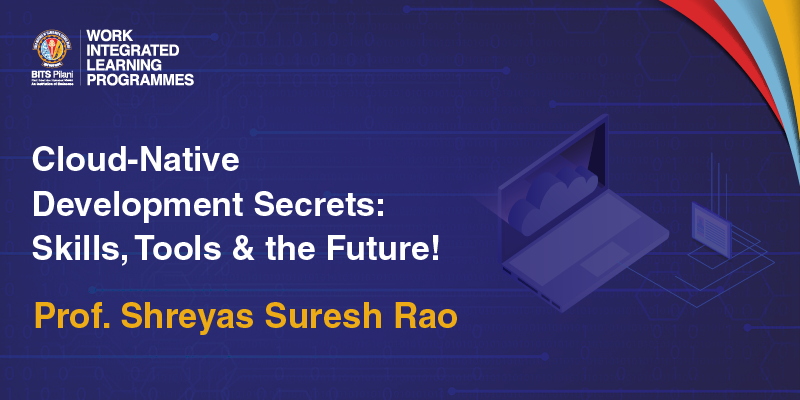
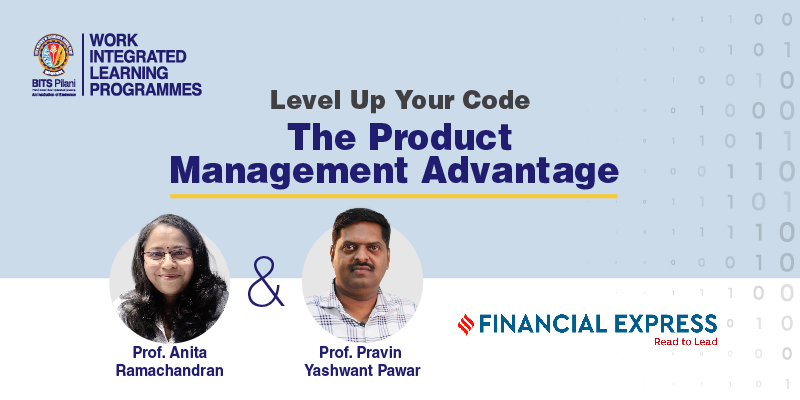
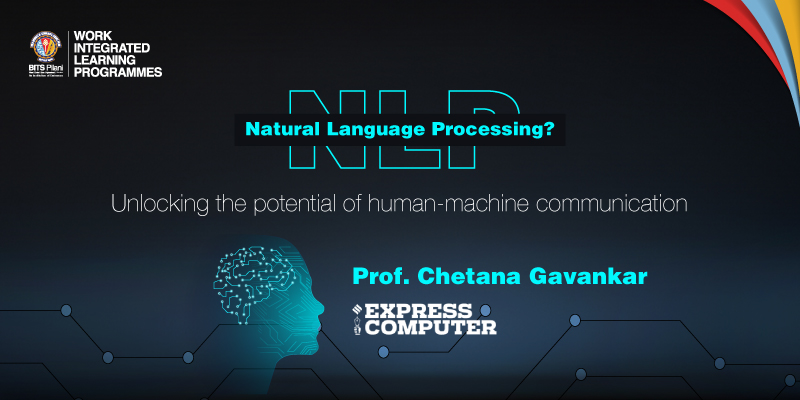
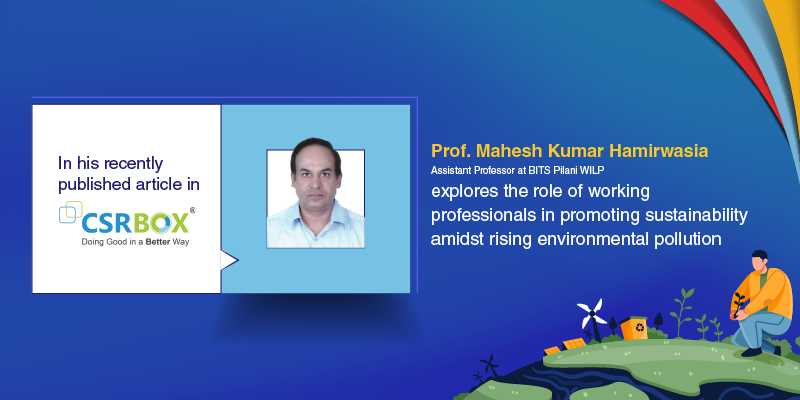
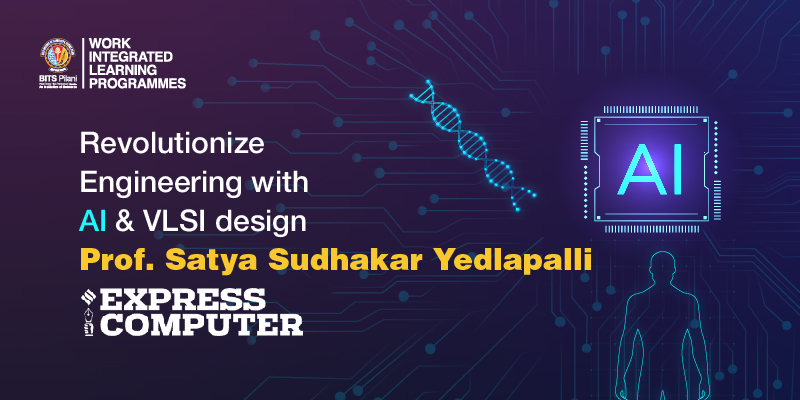
_12042024.jpg)
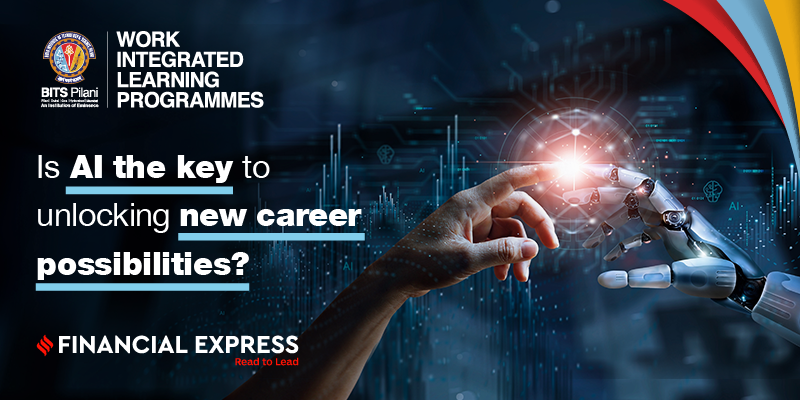
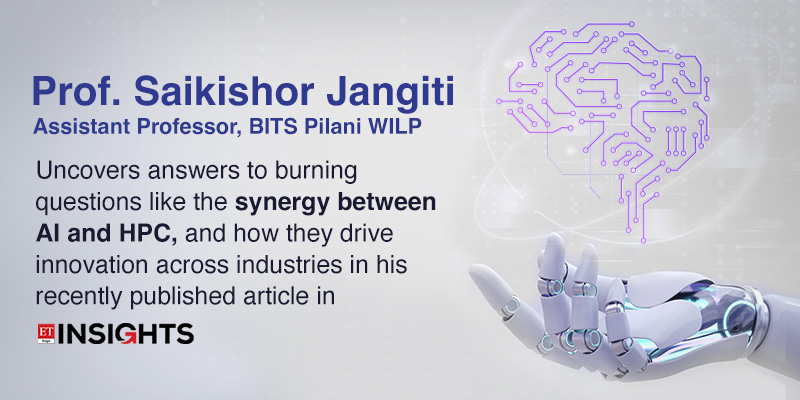
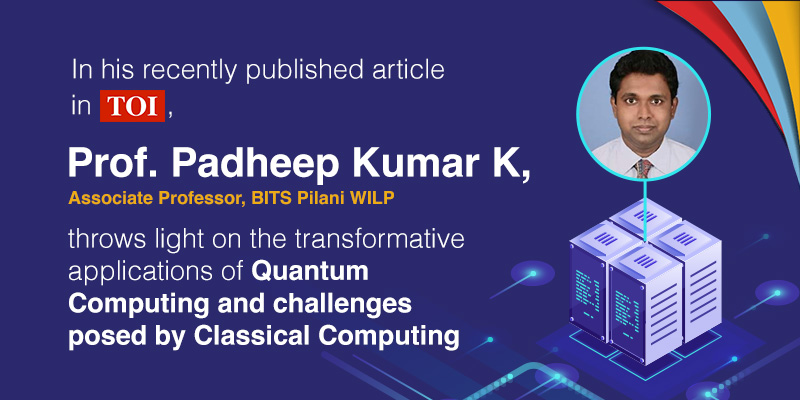
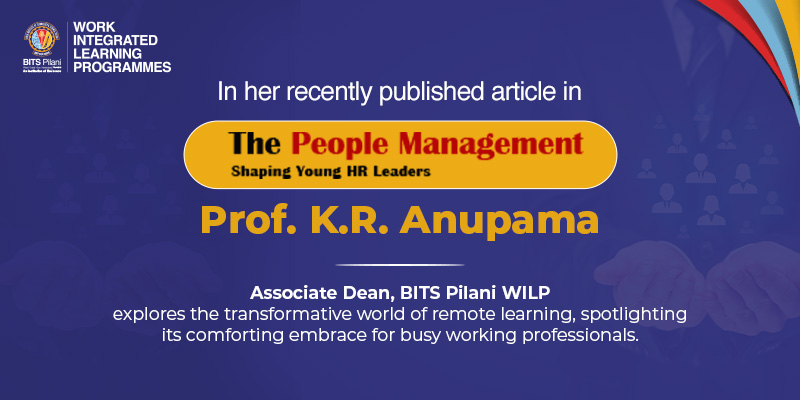
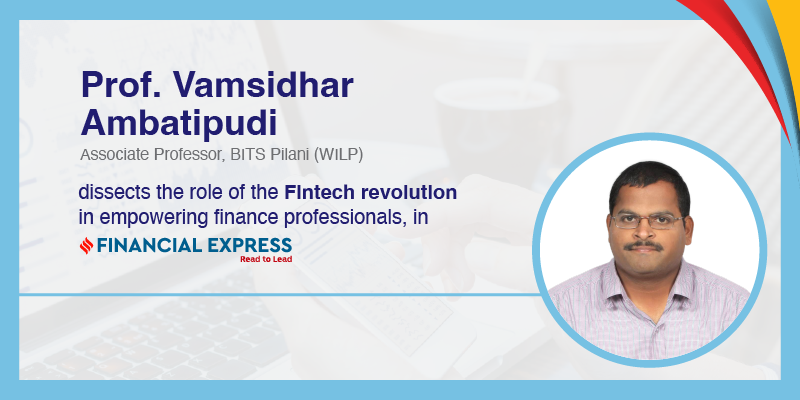
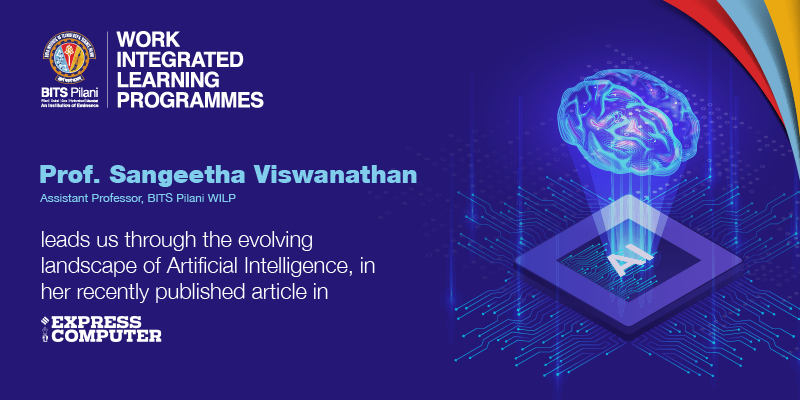
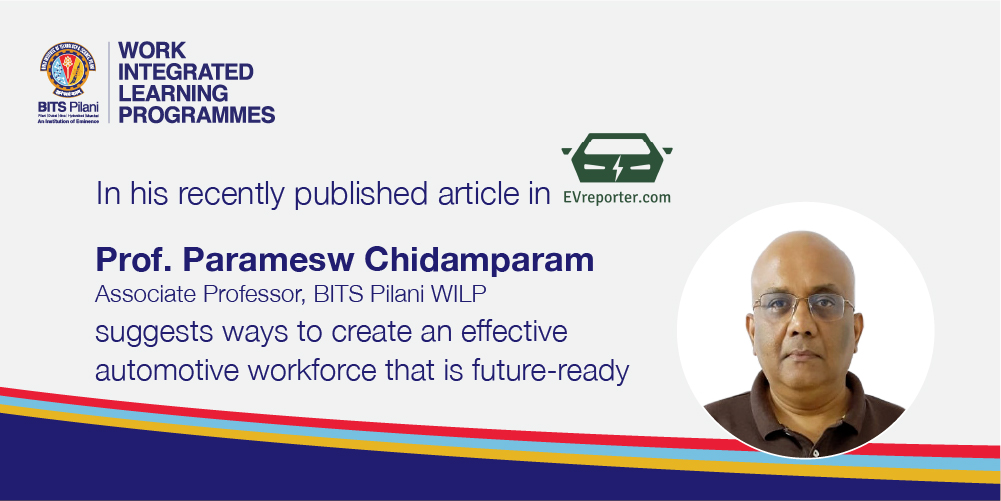
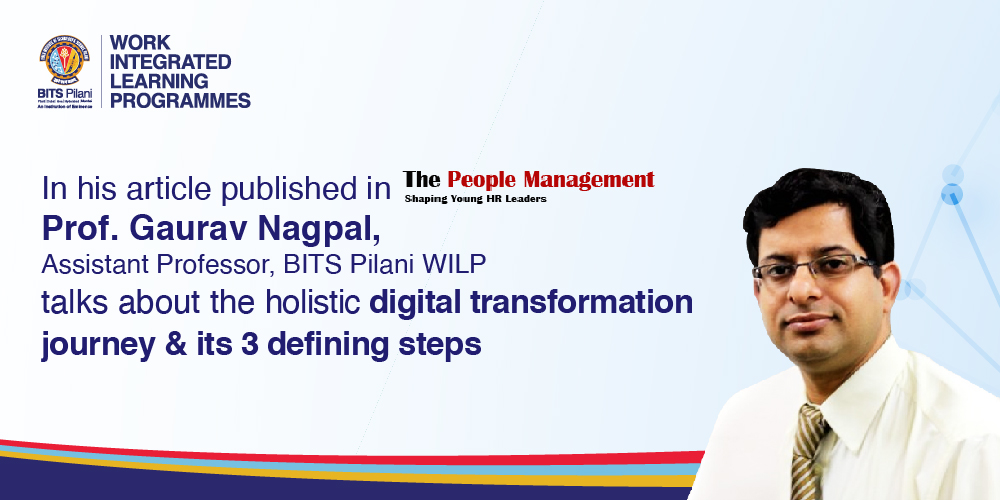
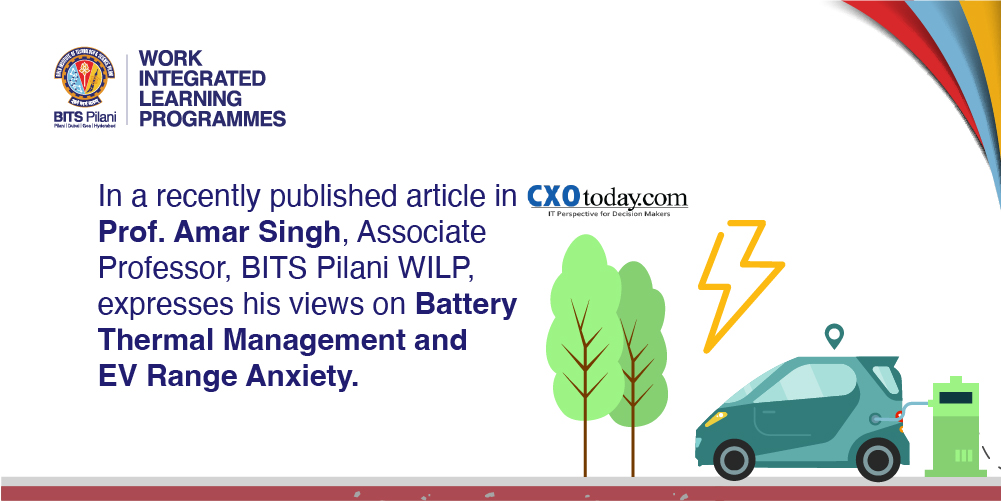
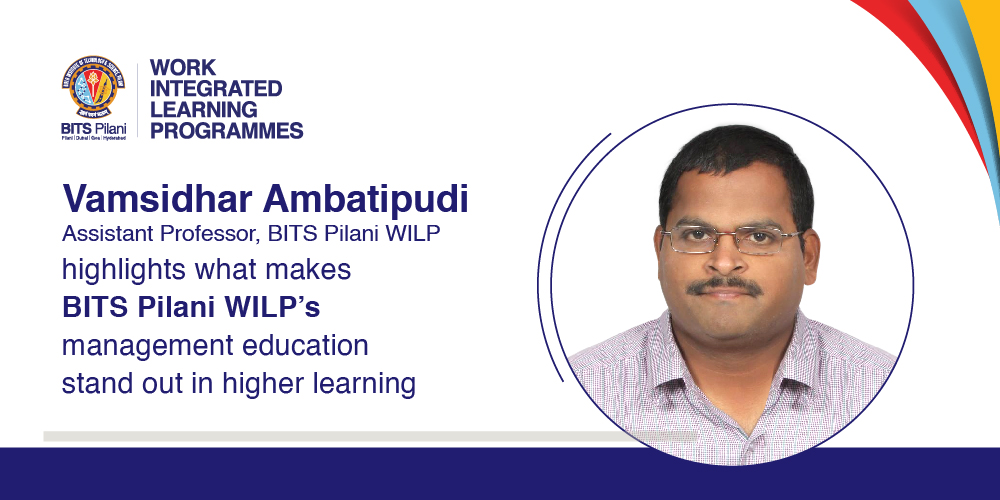
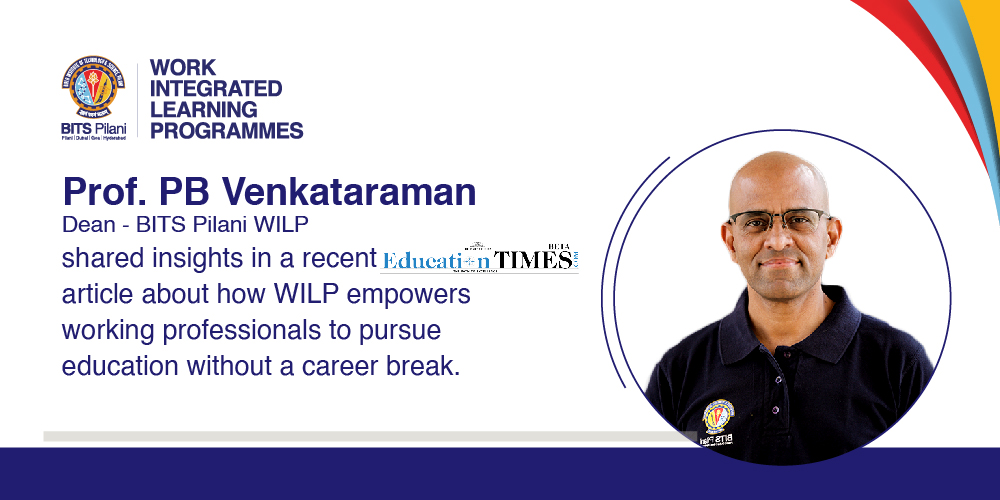
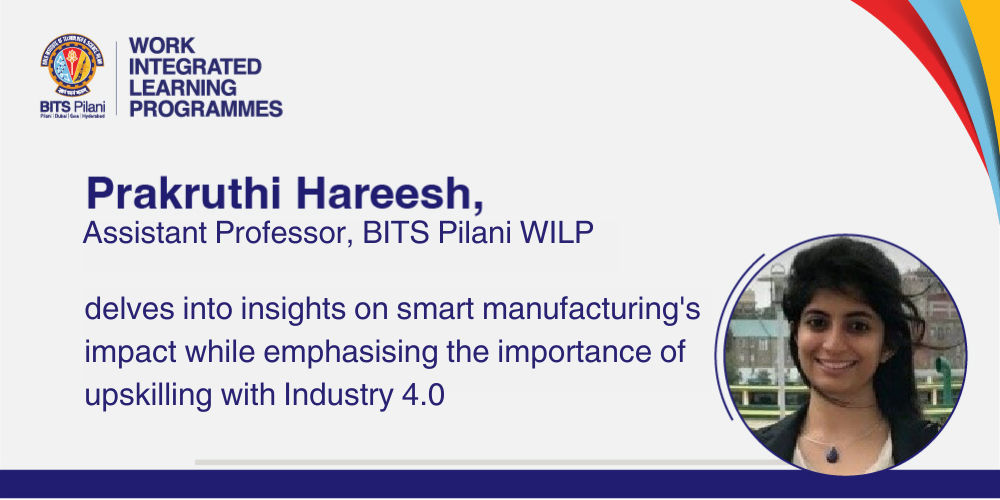
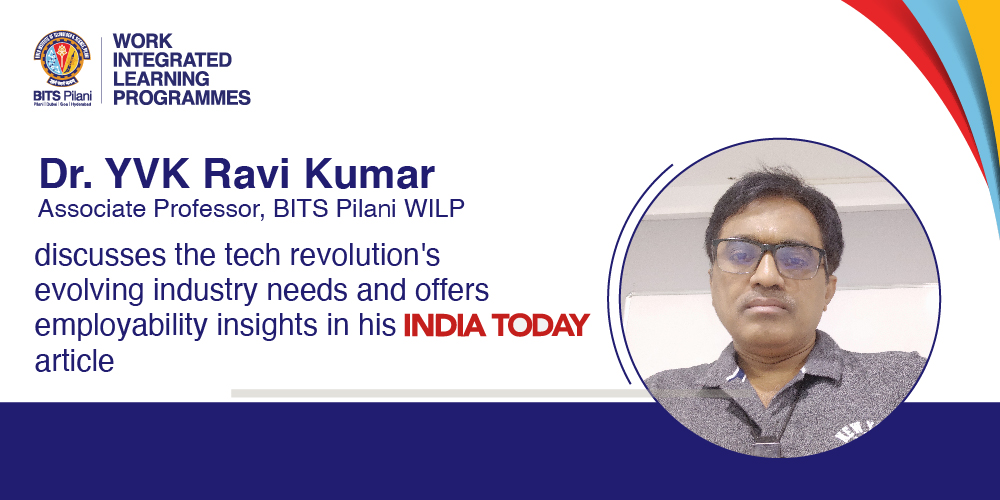
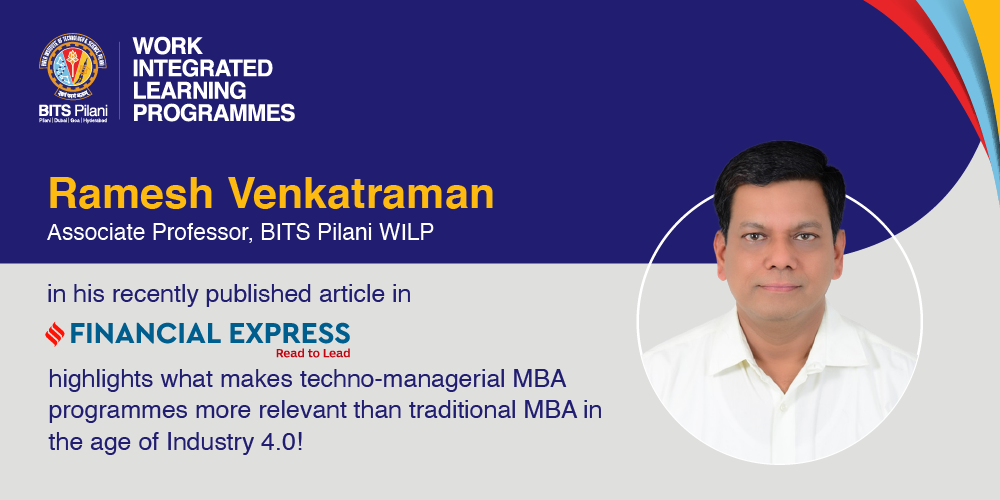
.png)
.jpg)
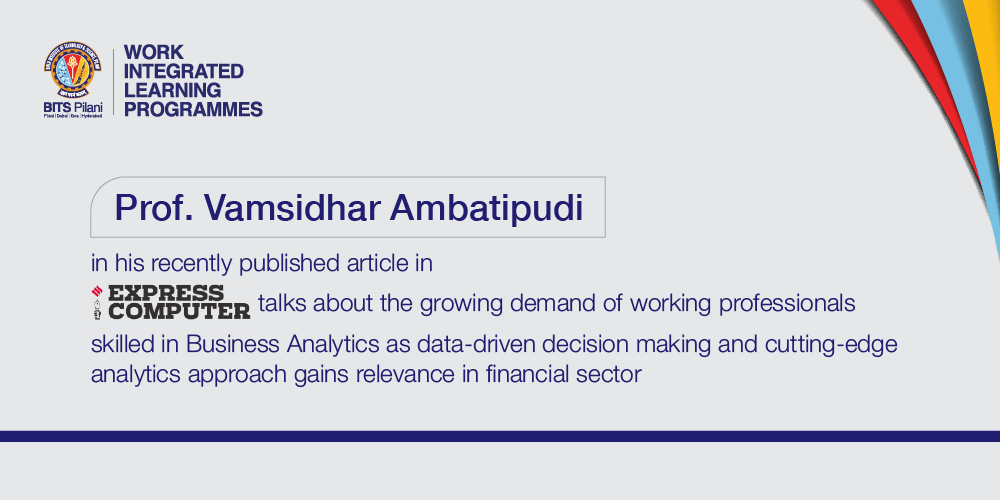
.png)
.png)
.png)
.png)
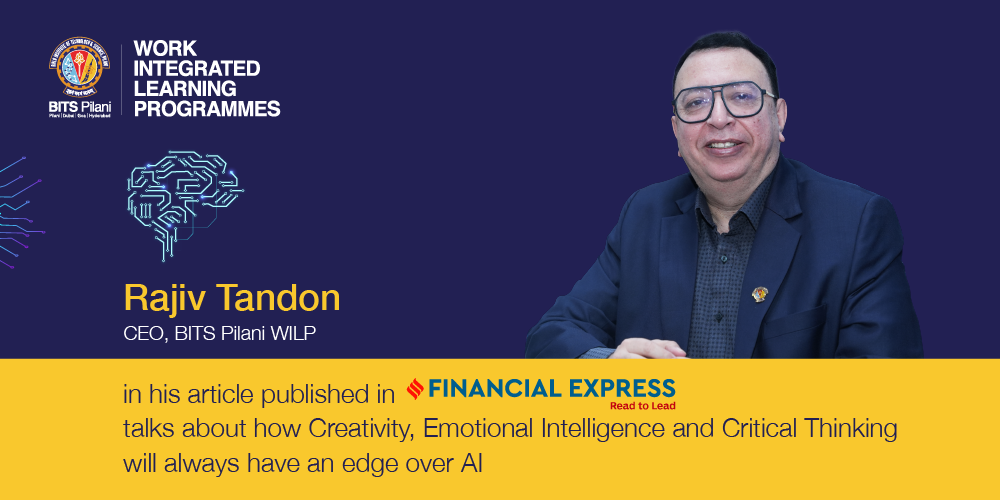
.png)
.jpg)
.png)
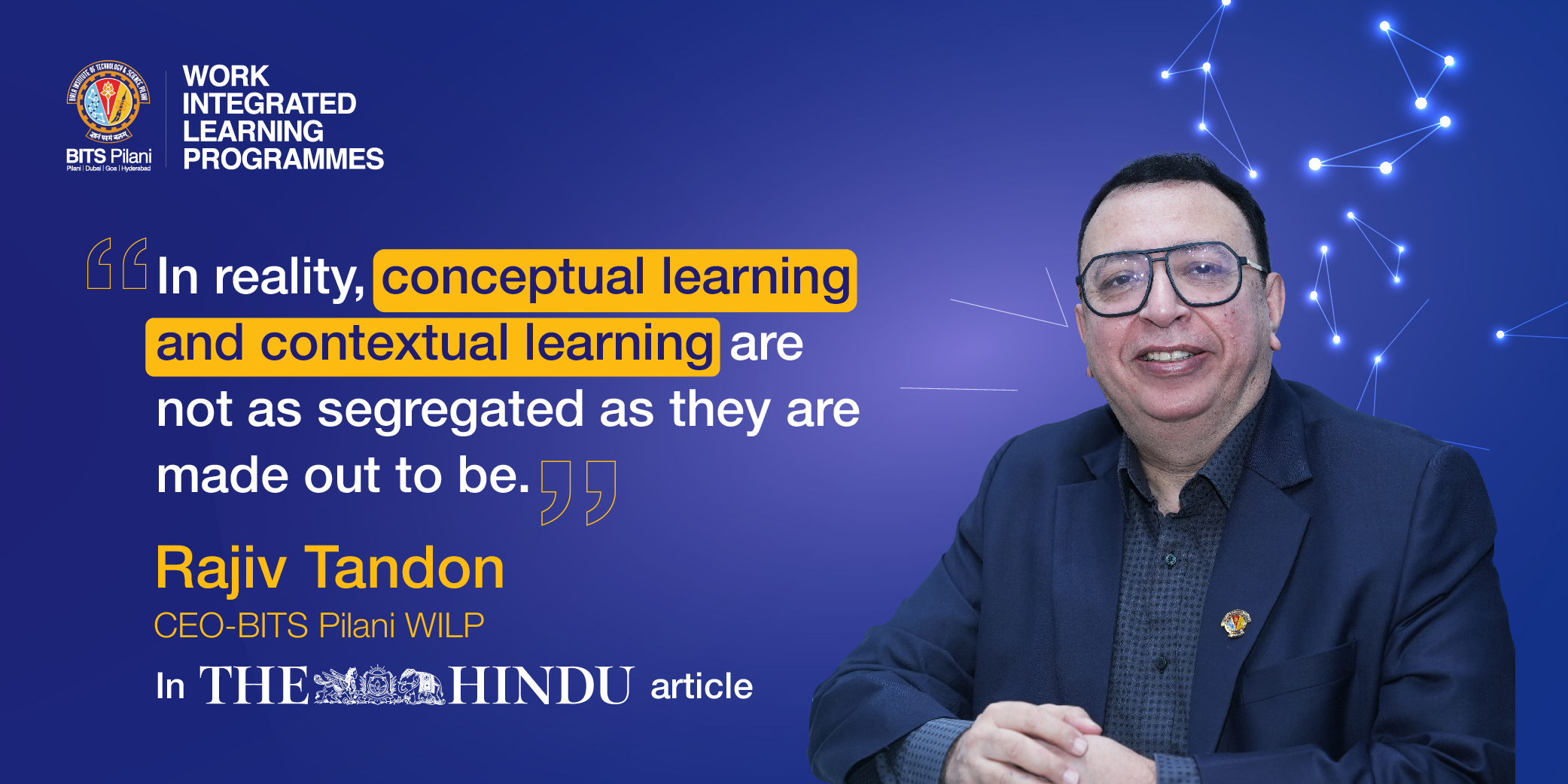
.jpg)
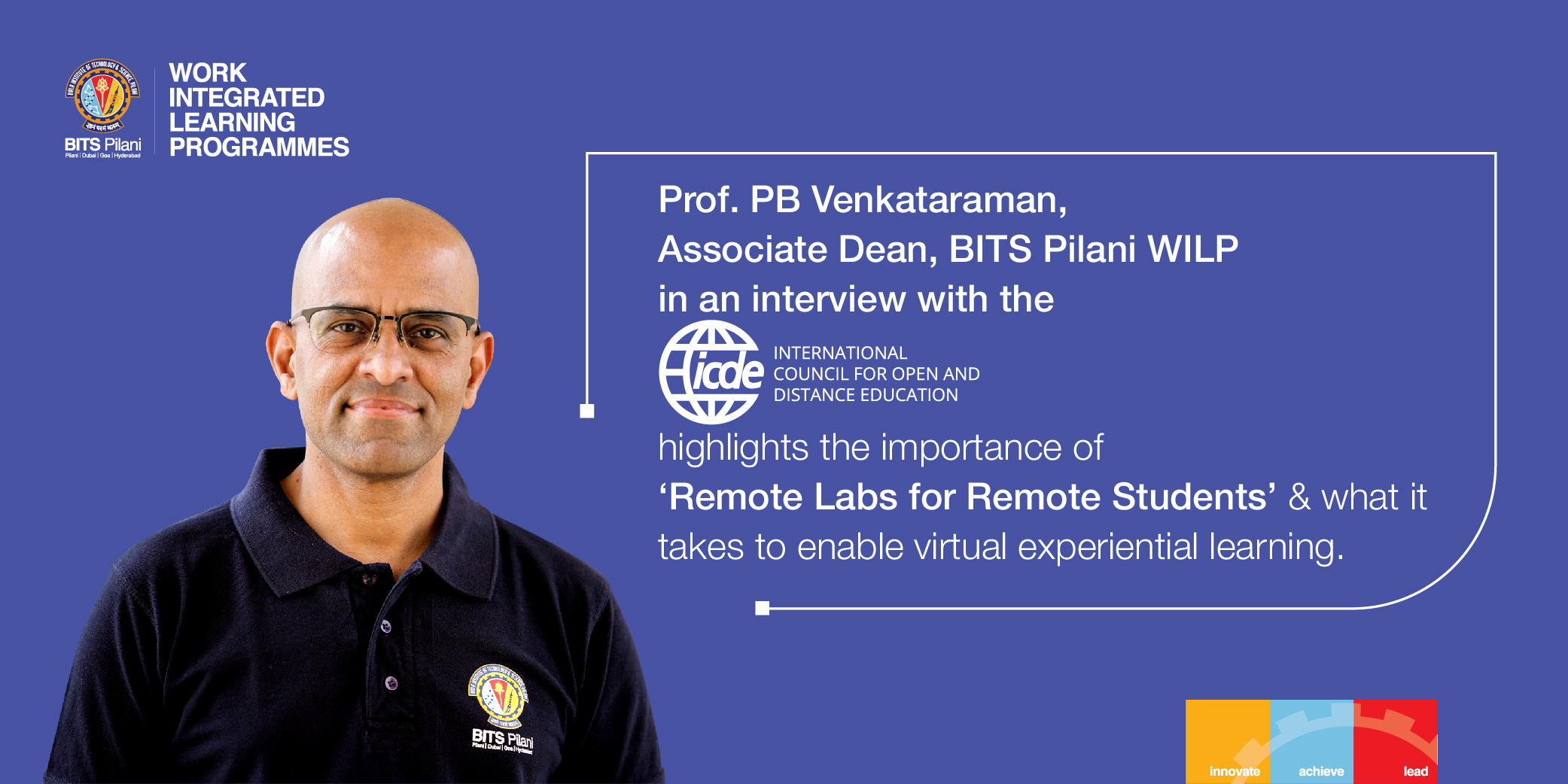
.jpg)
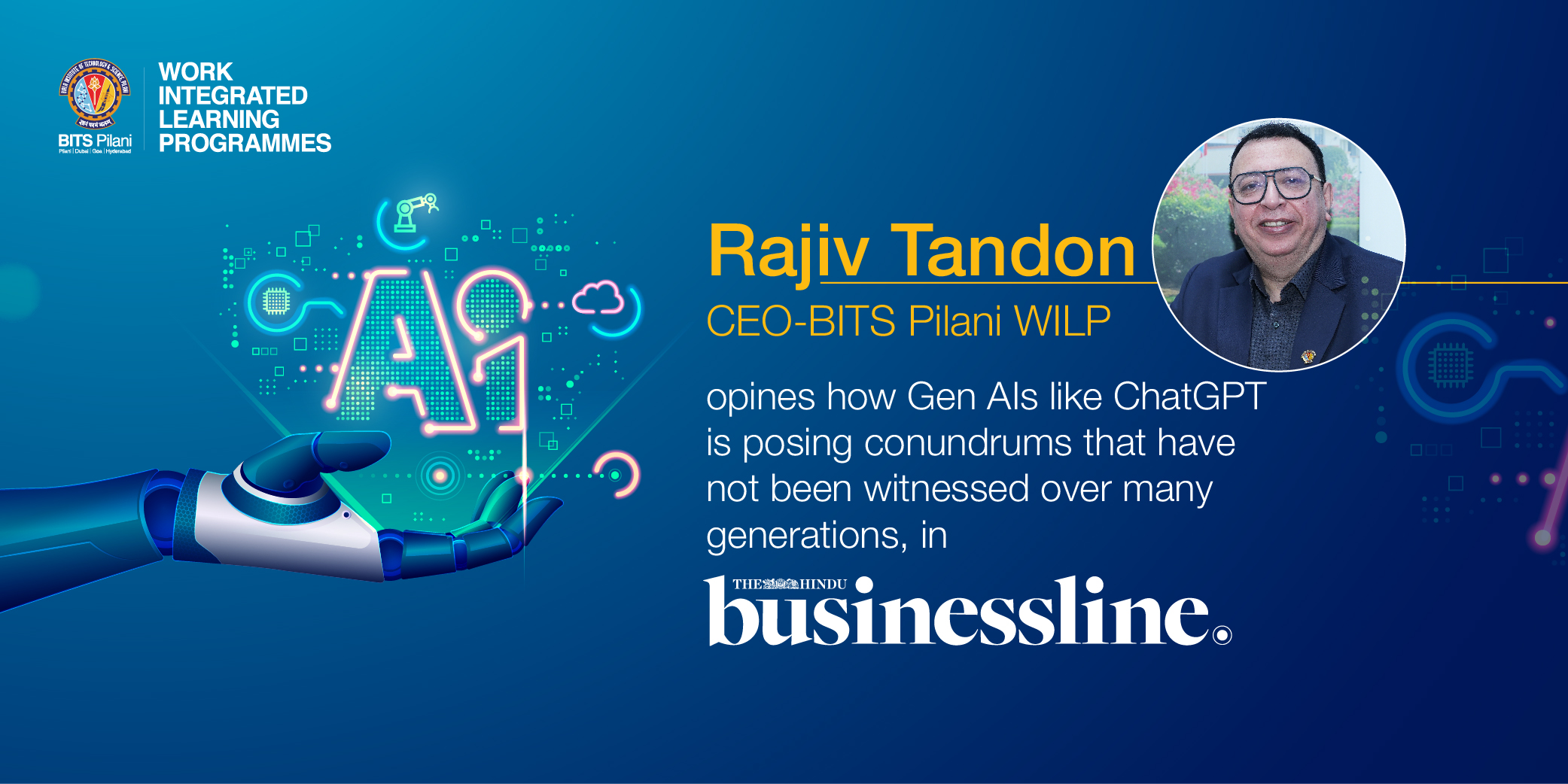
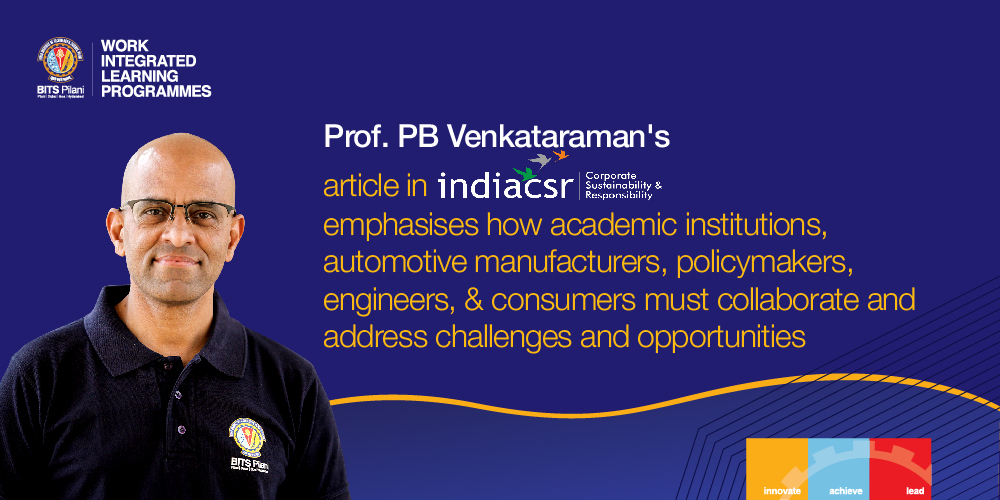
.png)
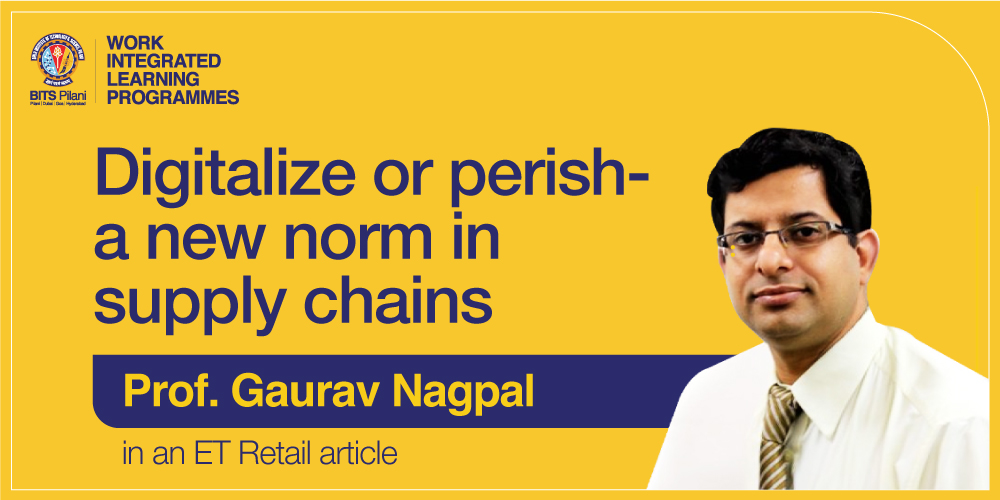
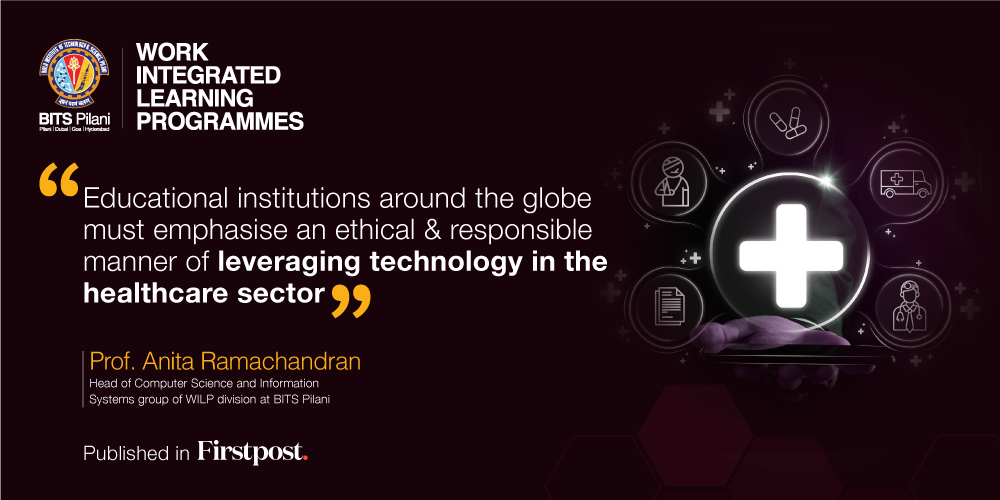
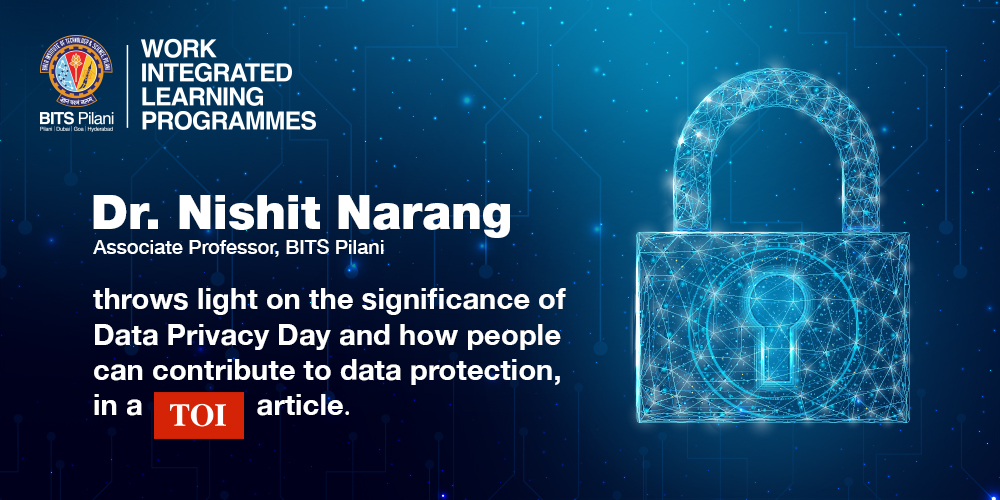
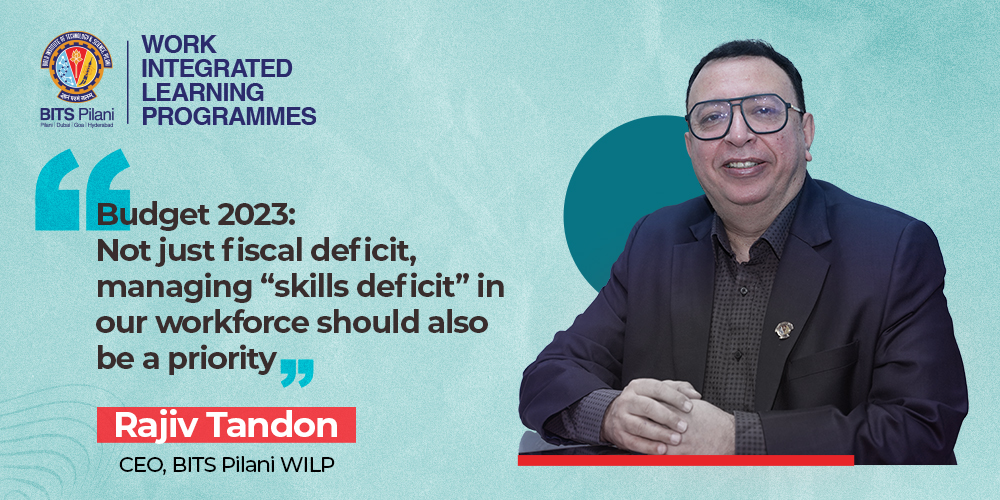
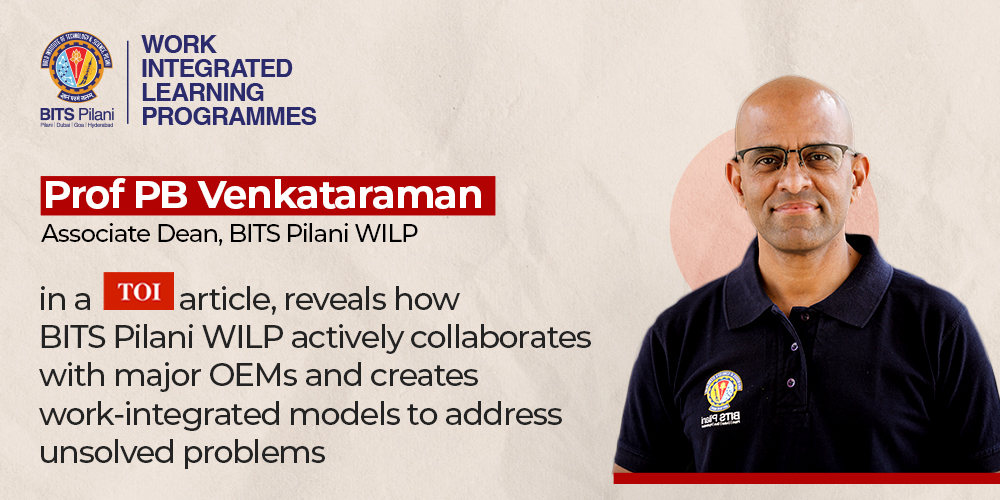
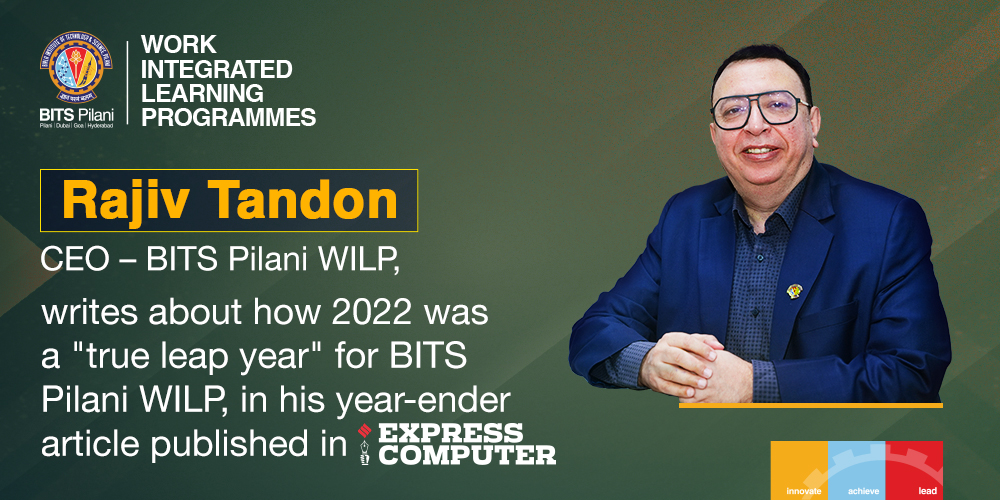
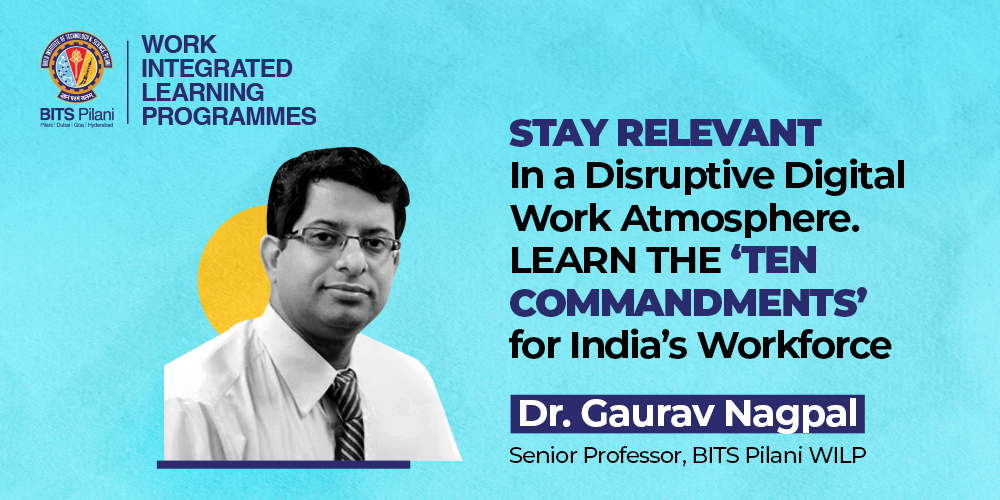
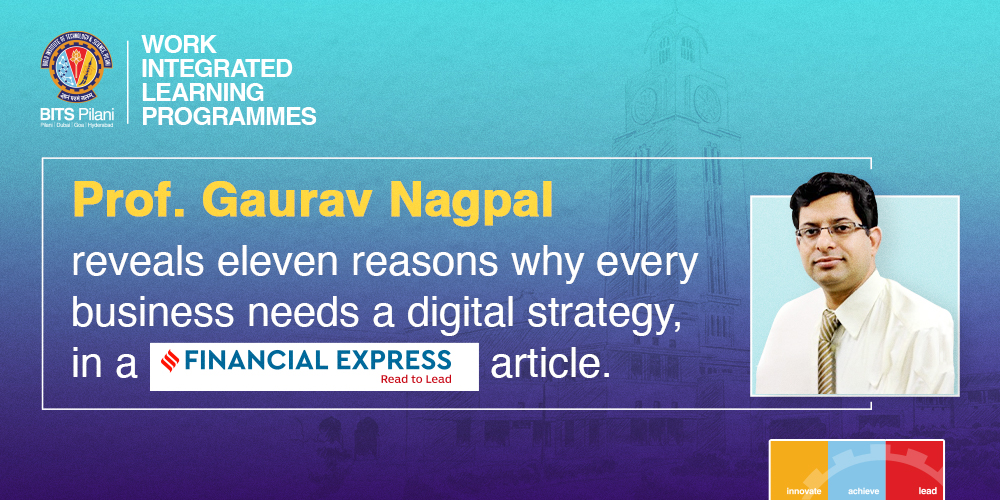
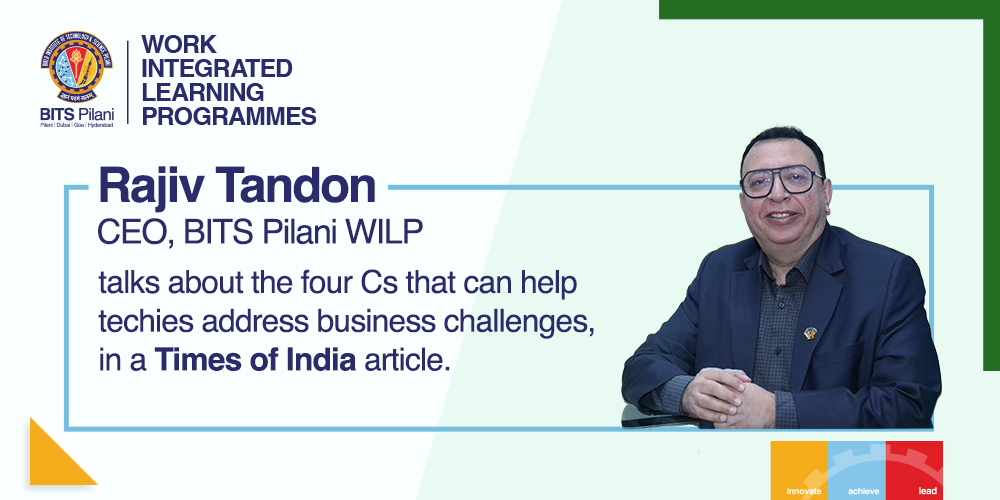
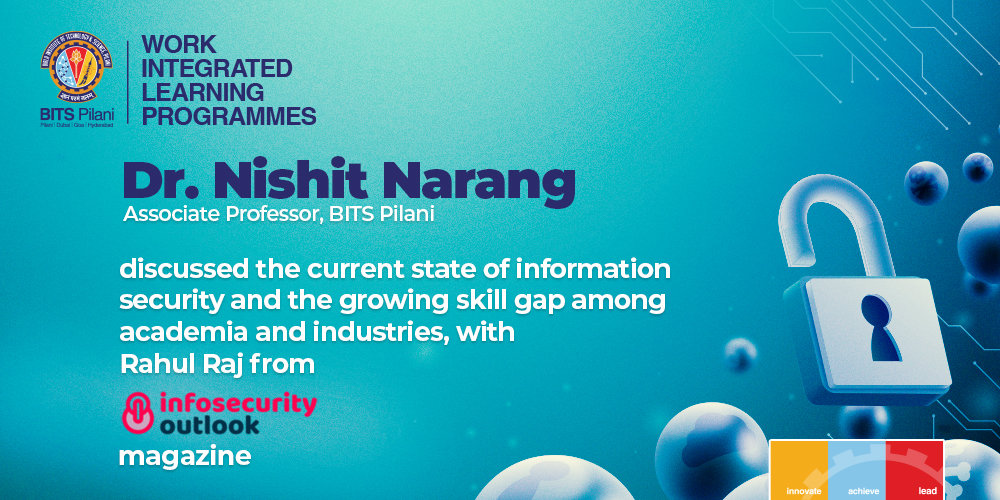
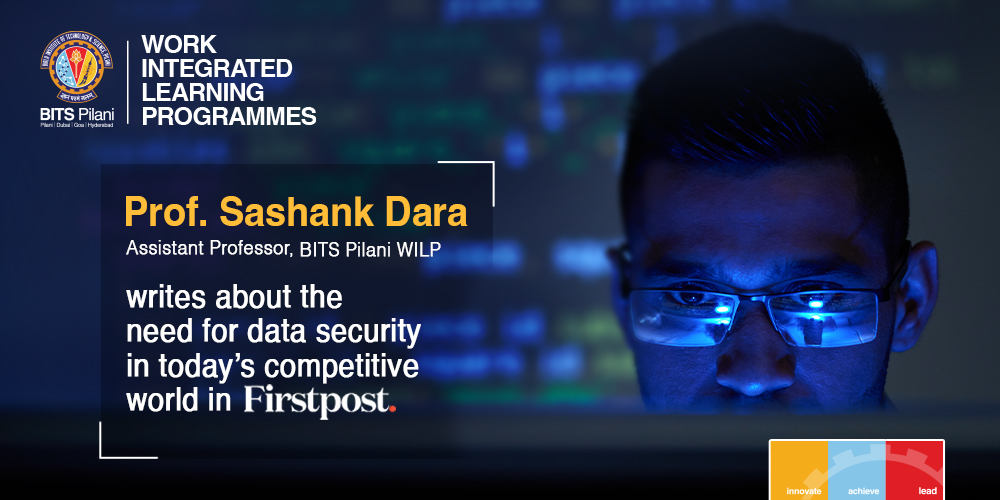
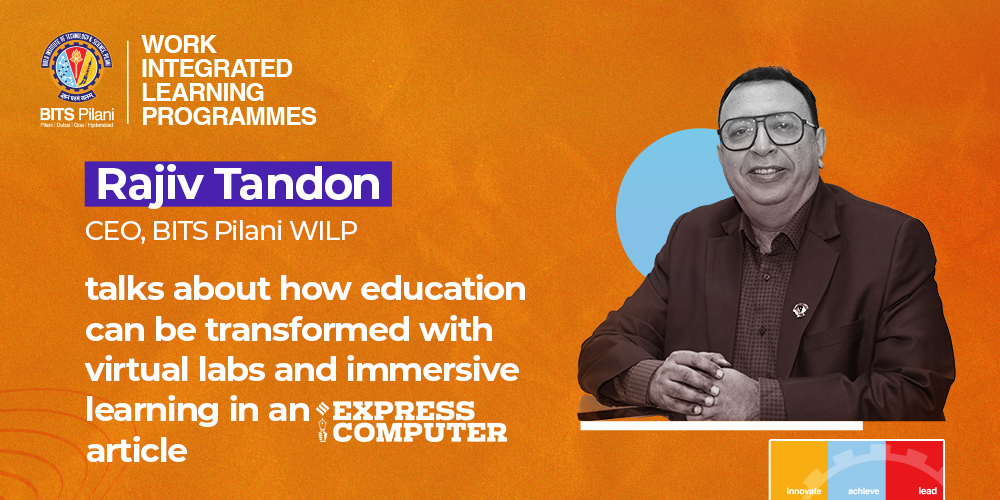
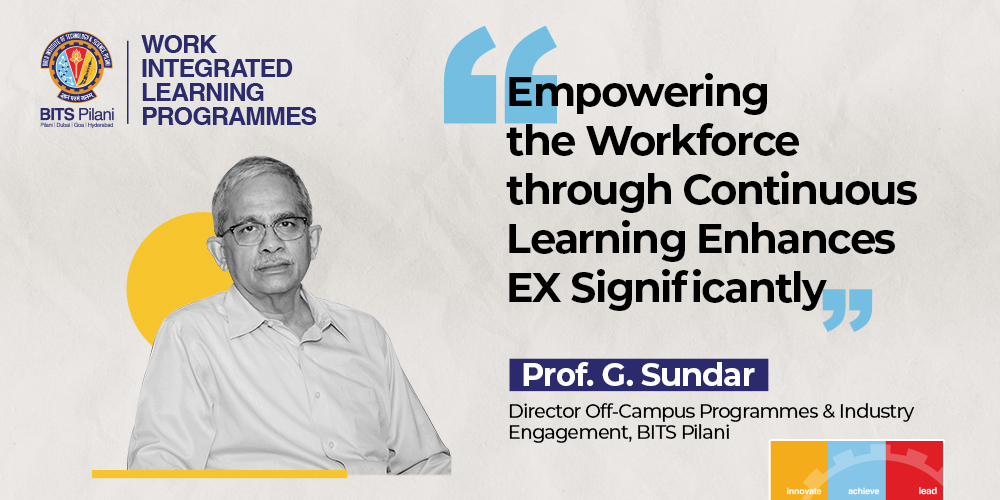
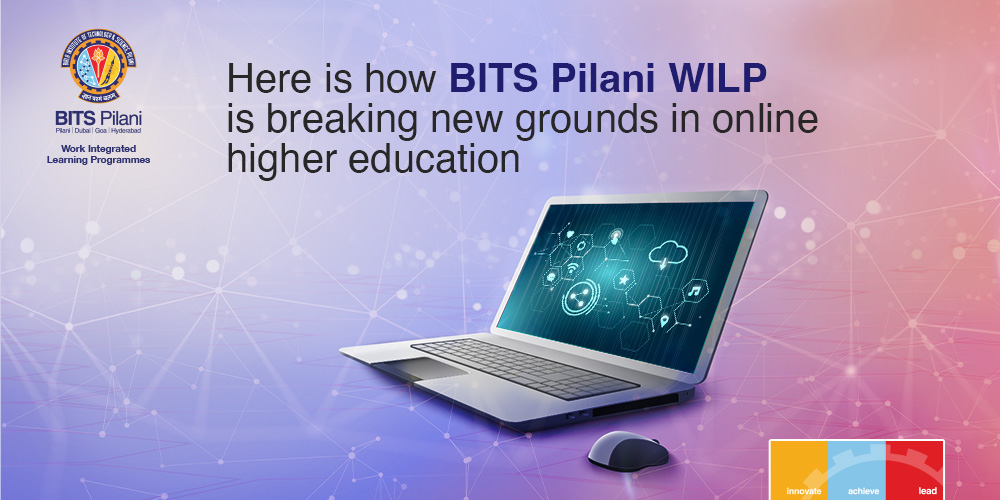
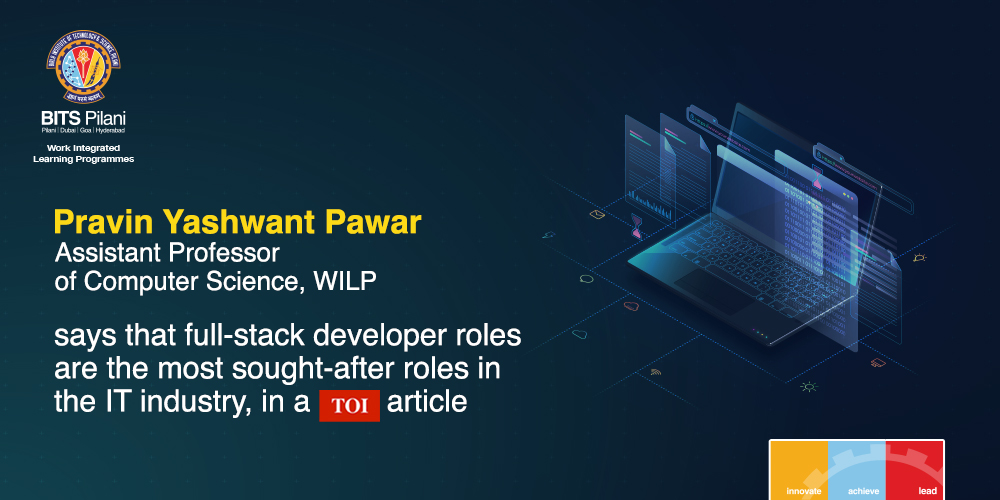
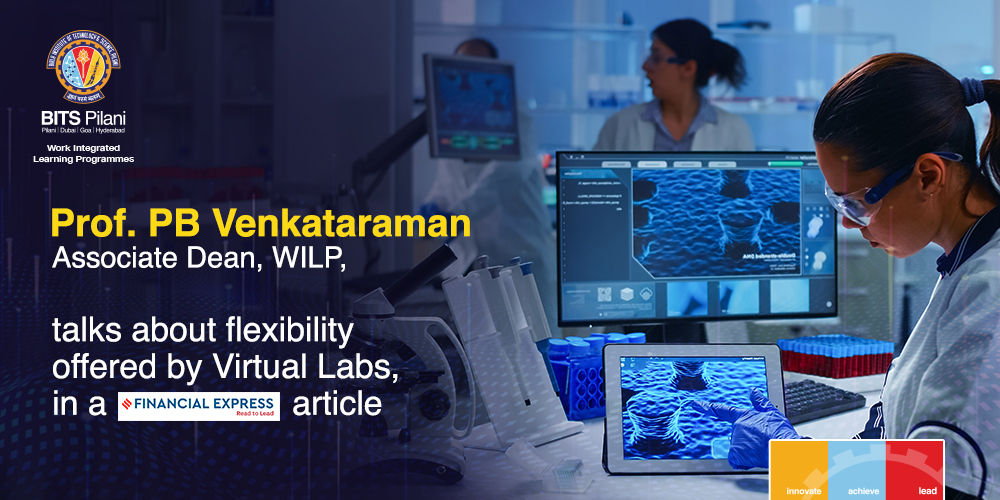
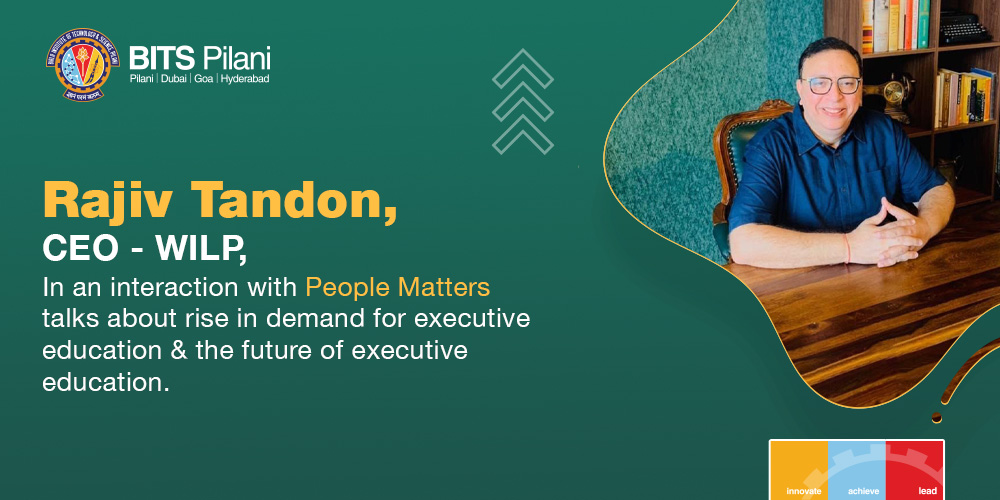
.png)
